The Romanov who was declared MAD
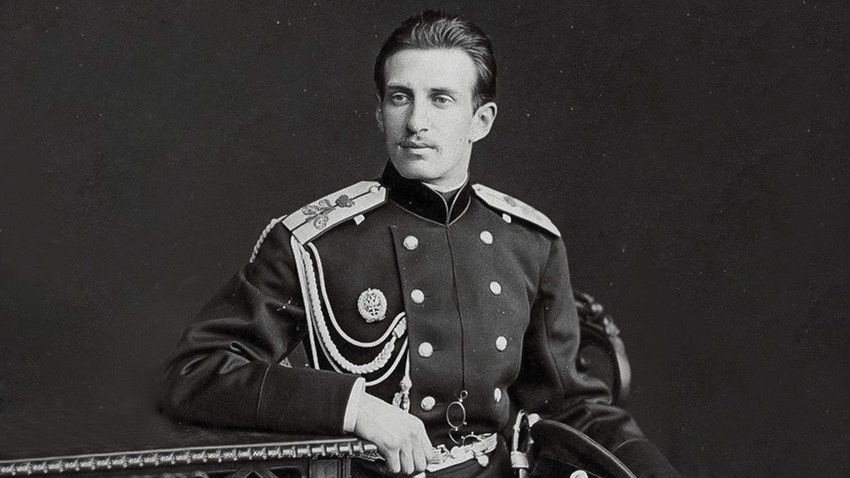
In January 2019, a truly royal treasure was discovered in Tashkent: coins, dishes, jewelry – worth more than a million dollars. They were treasures of Nicholas Konstantinovich (1850-1918), a grandson of Emperor Nicholas I, which were never found in Soviet times. While exiled to Tashkent, the member of the royal family did not squander family money there, on the contrary, he earned his living. Which was quite unusual for a Grand Duke. But then, he was one of the most unusual Romanovs in history.
The Romanov of Tashkent
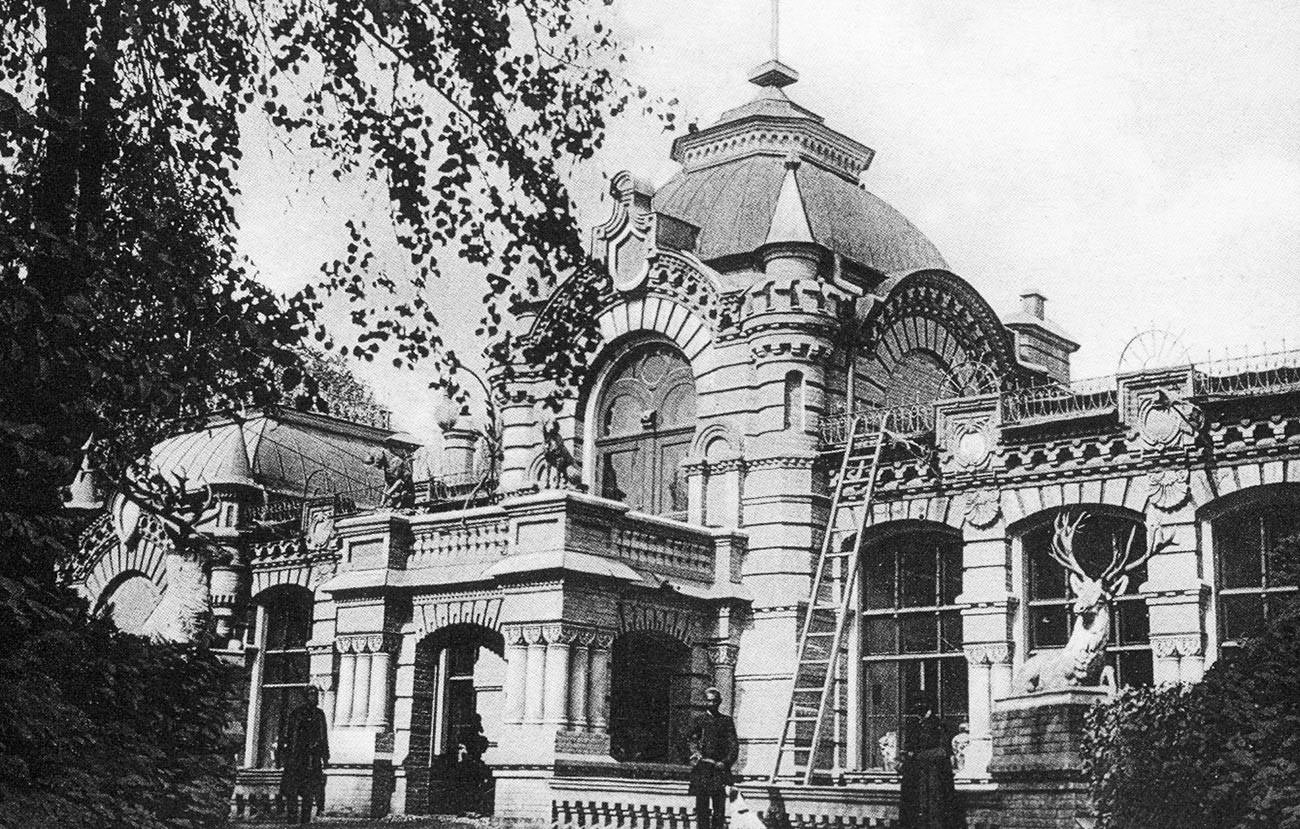
Grand Duke Nikolay Konstantinovich's palace in Tashkent, Russian Empire, beginning of the XX century
Public domainIn Tashkent, people still speak well of Nicholas Konstantinovich. The Grand Duke lived there until the end of his life and managed to do a lot for the city. First of all, he introduced plumbing. He also donated money for the construction of a drama theater (long since demolished) and the Khiva cinema (which still exists), and established scholarships for Uzbek students, who did not have enough money to enter Russian universities. He was a brilliant entrepreneur: he opened photo studios and billiard rooms, he started selling kvass and processing rice, he established soap factories and full-cycle cotton mills. The Grand Duke directed the proceeds from these and other undertakings to satisfying his interests – fortunately for the population of Tashkent, those were quite sane.
Nicholas Konstantinovich, an honorary member of the Imperial Russian Geographical Society, was well versed in agriculture and its needs. His most famous project was the irrigation of the Hungry Steppe, a saline desert outside Tashkent. With his own money, the Grand Duke financed the construction of the 60-mile Romanovsky irrigation canal, prompting the agricultural development of the Hungry Steppe, which continued under Soviet rule. In addition, he bequeathed half of his fortune for the public needs of Tashkent.
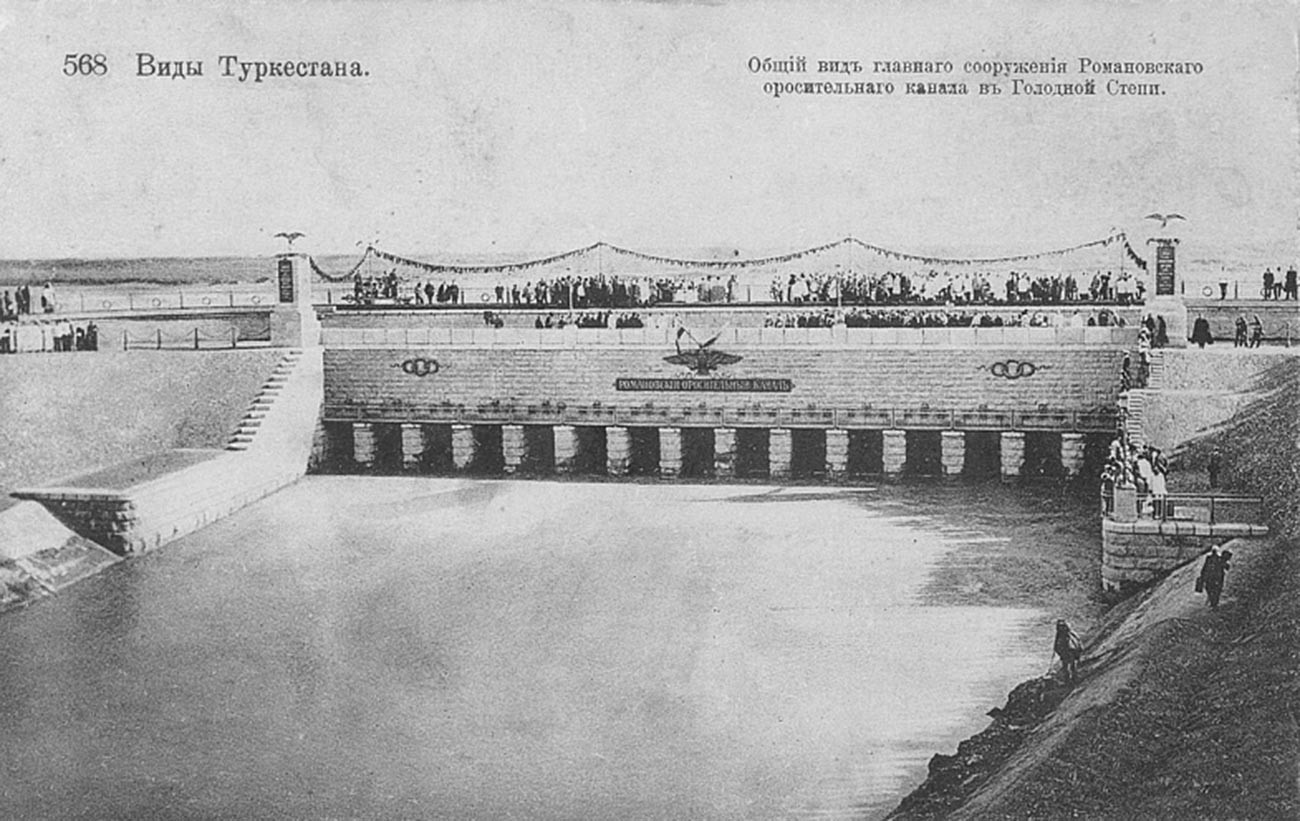
The main dam of the Romanov irrigation canal
Public domainThe Grand Duke referred to his canal as Iskander-Aryk (aryk is 'stream' in the Uzbek language), because he called himself Iskander, and from 1899, by a decree of the then emperor Nicholas II, the Grand Duke’s wife and all his descendants began to be called Dukes Iskander. However, none of them was ever accepted into the circle of the royal family – Nicholas Konstantinovich, Nicola, as he was called at home in his youth, was forever an outcast among the Romanovs. When Emperor Alexander II was assassinated in 1881, Nicola wrote to his cousin, the next Emperor Alexander III, asking to be allowed to come to St. Petersburg "to pray at the ashes of the monarch I adore". The tsar's response to his cousin was: “You are not worthy of bowing to the ashes of my father, who was so cruelly deceived. Do not forget that you dishonored us all. While I am alive, you will never see Petersburg." What had gone so wrong?
The Grand Duke and a dancer
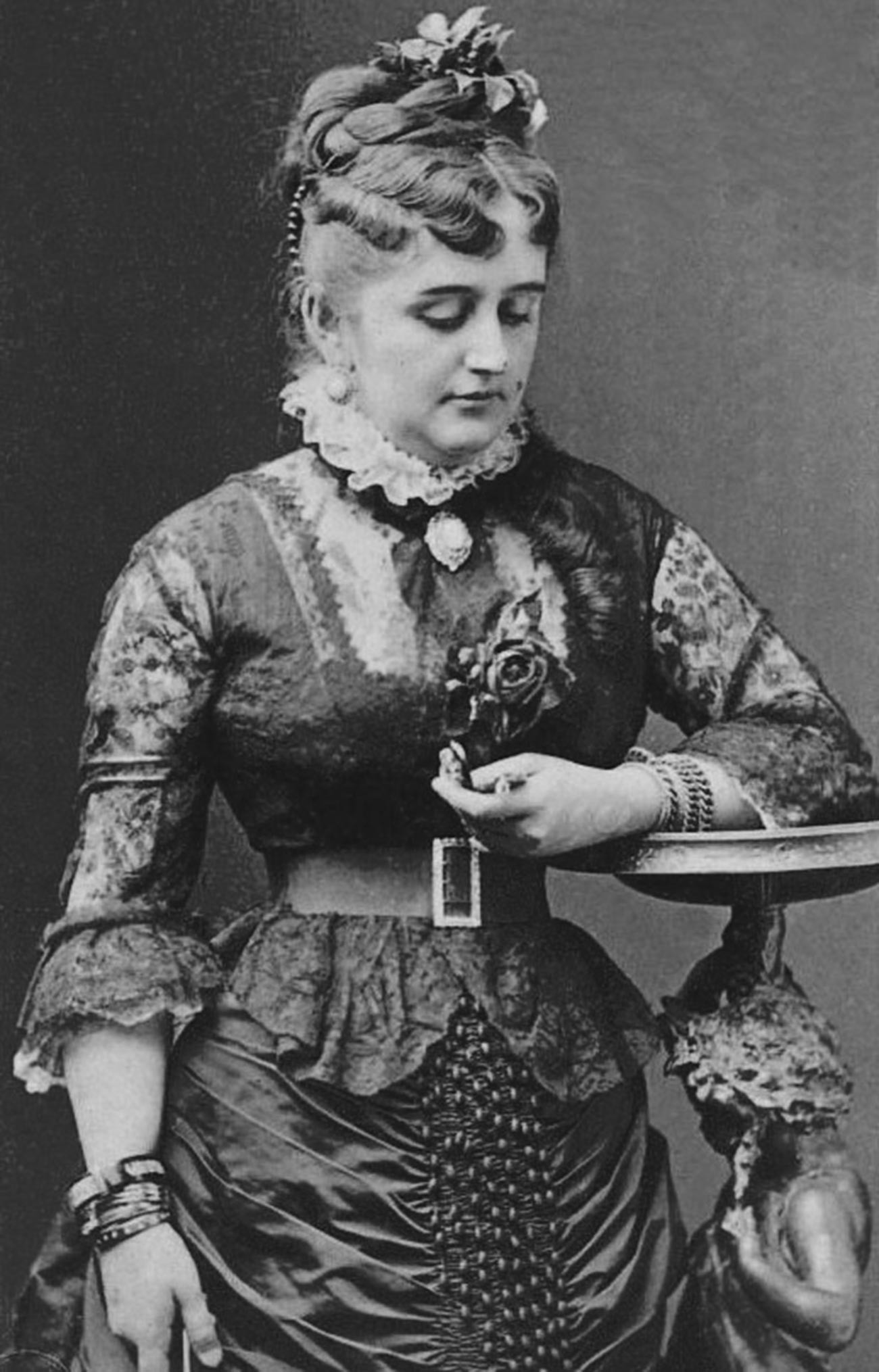
Fanny Lear, circa 1880
Public domainAs a young man, Nicholas Konstantinovich became famous in his family circle as the first Romanov to graduate from a higher educational establishment – the Academy of the General Staff, and with a silver medal too. A brilliant officer, a squadron commander, in about 1871, he met Harriet Blackford (1848-1886) at a ball. The 23-year-old American dancer, who called herself Fanny Lear, had already been married and was raising a child. Nicola fell in love with her and started throwing lavish parties in her honor, which soon became the talk of St. Petersburg.
Nicola's behavior was in violation of several principles of princely ethics. By the standards of the imperial family, Fanny was considered a common prostitute. Open association with women like this and public appearances with them were unacceptable for a Grand Duke. To break this liaison, Konstantin Nikolayevich, Nicola's father and a brother to Emperor Alexander II, dispatched Nicola as part of an expeditionary force to Central Asia, to Khiva, to the very places where the Grand Duke would later be exiled. Having displayed legendary courage and been awarded with the Order of St. Vladimir, Third Class, Nicholas Konstantinovich returned from the military campaign and – reignited his affair with Fanny Lear with a vengeance. Together with her and his bon vivant friend Cornet Nikolai Savin, the Grand Duke traveled to Europe, and upon return rented a house for Fanny in St. Petersburg.
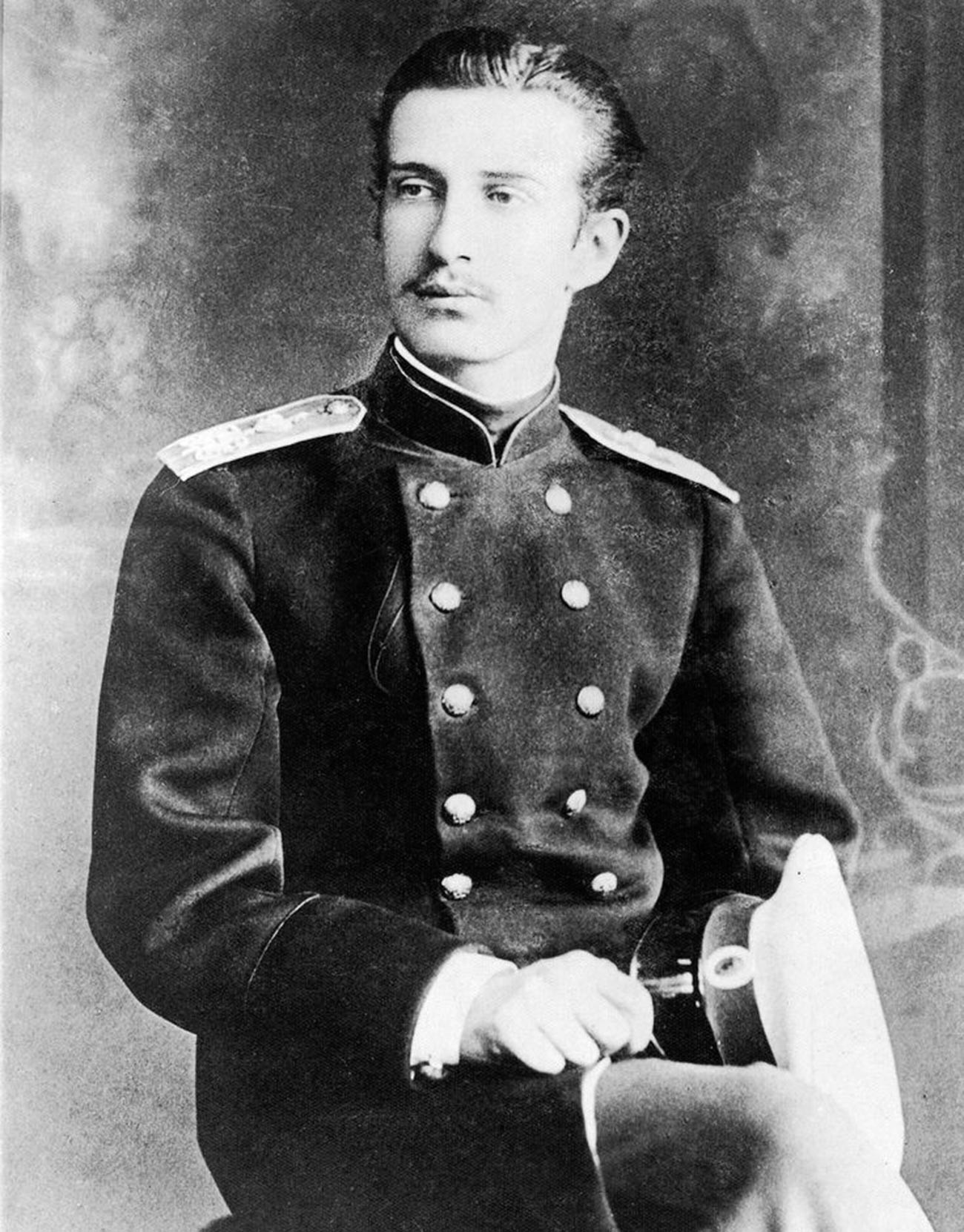
Grand Duke Nicholas Konstantinovich
Public domainGrand dukes and duchesses had their private incomes: at their birth, their parents traditionally invested a certain amount in securities, the interest from which replenished the personal capital of the royal offspring. In addition, they were given significant sums for their private expenses. However, even that was not enough for the lavish lifestyle that Nicola and his girlfriend enjoyed, and the Grand Duke decided to violate a couple of more centuries-old princely principles: he committed a crime combined with sacrilege.
A psychiatric solution
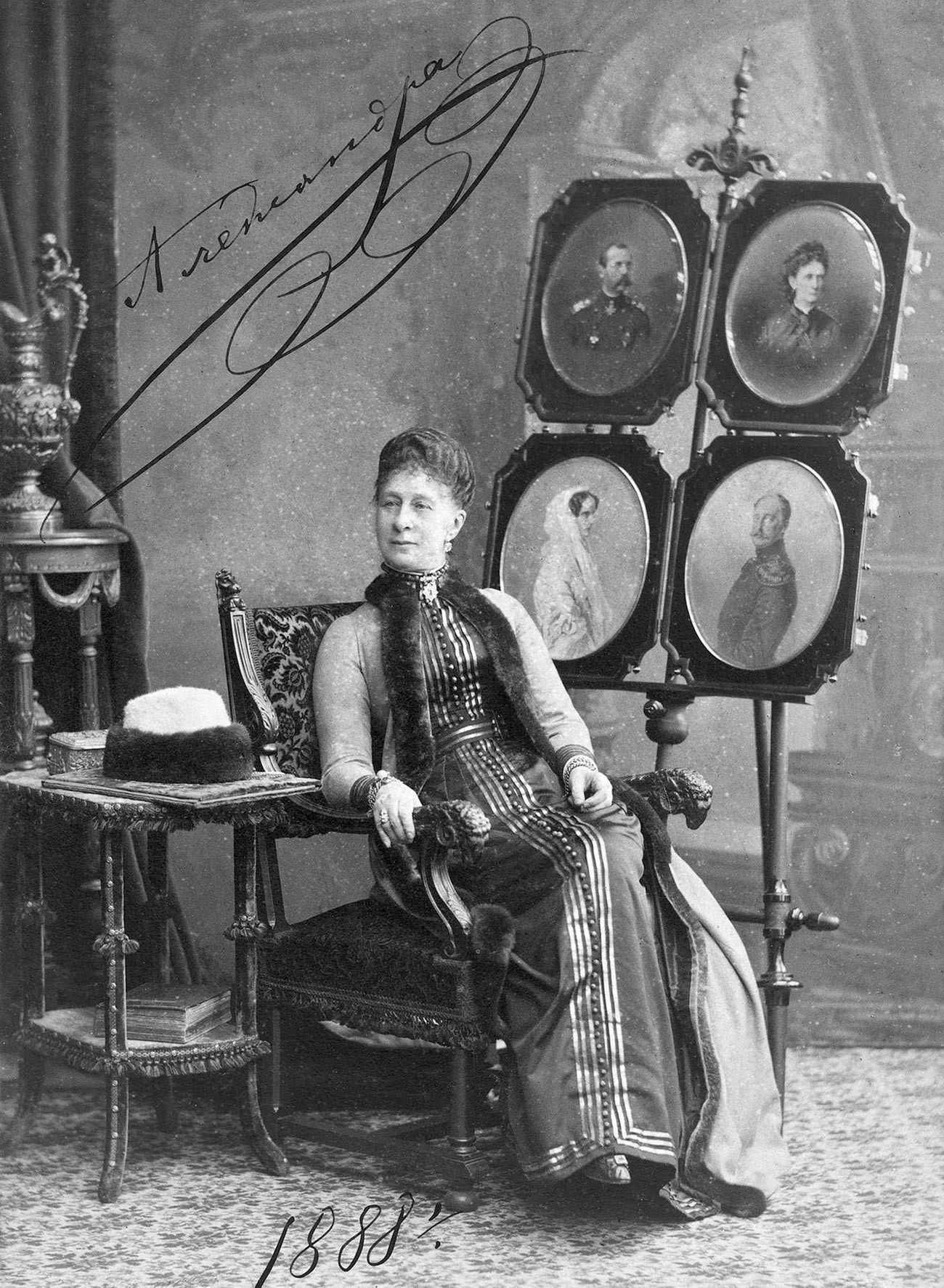
Grand Duchess Alexandra Iosifovna later in her life, in 1888
Charles BergamascoNicola's mother, Grand Duchess Alexandra Iosifovna, was famous for her beauty and cheerful disposition. She hosted celebrated musical soirees, at which she performed her own music, mainly marches; and Johann Strauss had dedicated a waltz and a quadrille to her. Her most eccentric passion was her love for séances. As lady-in-waiting Anna Tyutcheva wrote, Alexandra Iosifovna “had so many séances and so frequently that she ended up having a miscarriage and nearly lost her mind". But all that was later. As a young woman, Alexandra was the beloved bride of Konstantin, the second son of Nicholas I. The Emperor himself, a music lover and a connoisseur of female beauty, admired his daughter-in-law and gave her a family relic as a wedding present: an icon of the Virgin, set in a riza decorated with diamonds.
Three of those diamonds, as was established by a subsequent investigation, were stolen by Nicholas Konstantinovich on an April night in 1874, and later pawned by his adjutant. Things were further exacerbated by the fact that at the first interrogation, Nicola swore on the Bible that he was innocent, furthermore, he remained in a disgustingly good mood. His father Konstantin Nikolayevich wrote in a journal: “No remorse, no confession, except when denial was no longer possible, and even then you had to pull it out of him. Bitterness and not a single tear. We begged him, for the sake of all that was still sacred to him, to alleviate his guilt by sincere repentance and confession! Nothing worked!"
The story was already widely discussed in St. Petersburg, so it was necessary to somehow explain the Grand Duke's behavior. A seemingly neat solution was found: it was decided to publicly announce that the Grand Duke was insane, namely that he was a kleptomaniac. The decision was, so to speak, at hand: the Grand Duke's mother Alexandra Iosifovna was long considered to have gone completely crazy with her endless séances. A council of physicians was convened headed by the renowned Russian psychiatrist Ivan Balinsky, who examined Nicola and talked to him.
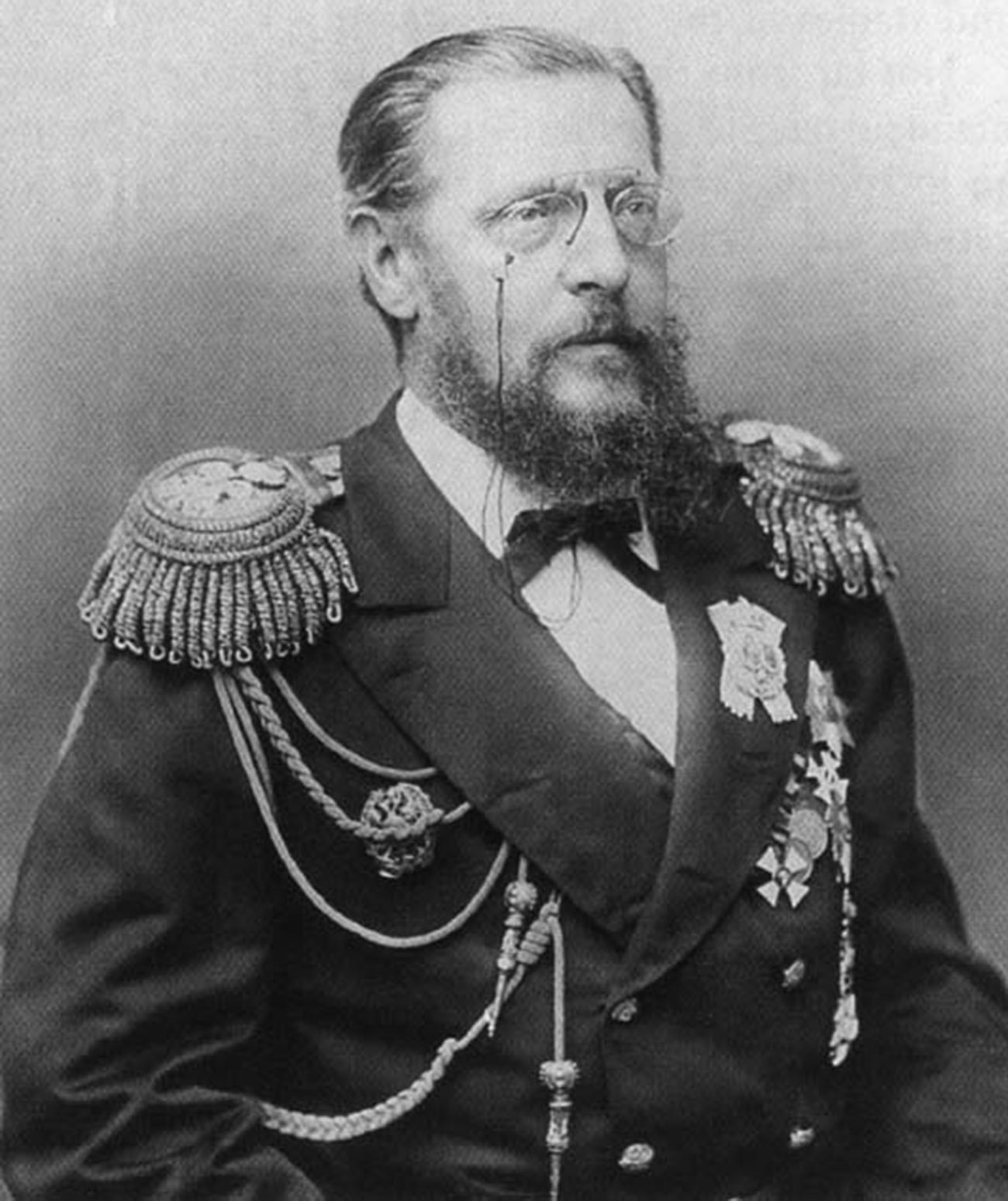
Grand Duke Konstantin Nikolaevich, Nicholas's father
Public domainAs Professor Igor Zimin notes, the interim diagnosis of 12 August 1874 stated: “We [...] do not find His Highness to show signs of kleptomania, but [...] the patient has clearly developed a hereditary form of insanity.” In fact, Nicholas Konstantinovich was never given a specific diagnosis: phrases like “a painful mental disorder” or “anemia and a complete nervous breakdown” were too vague. In the end, the decision was made by Alexander II himself. On 11 December, an official decree was issued that stated that Grand Duke Nicholas Konstantinovich “suffers from a disorder of mental abilities”. He was formally placed under the care of his father but in fact, was under the supervision of the Minister of the Interior. It was forbidden to mention his name in official papers, and his inheritance was transferred to his younger brothers. He was also stripped of all his ranks and awards and was struck off the lists of his regiment. The 24-year-old Grand Duke faced lifelong banishment from St. Petersburg, however, he retained his title and continued to be listed as a member of the imperial family up until 1917. In addition, he received 12,000 rubles a year for his upkeep. But that money was just a drop in the ocean of his fortune. By the end of his life, his annual income amounted to 1.4 million rubles, since all of his business ventures were highly profitable. So, was he actually insane?
Was Grand Duke Nicholas Konstantinovich insane?
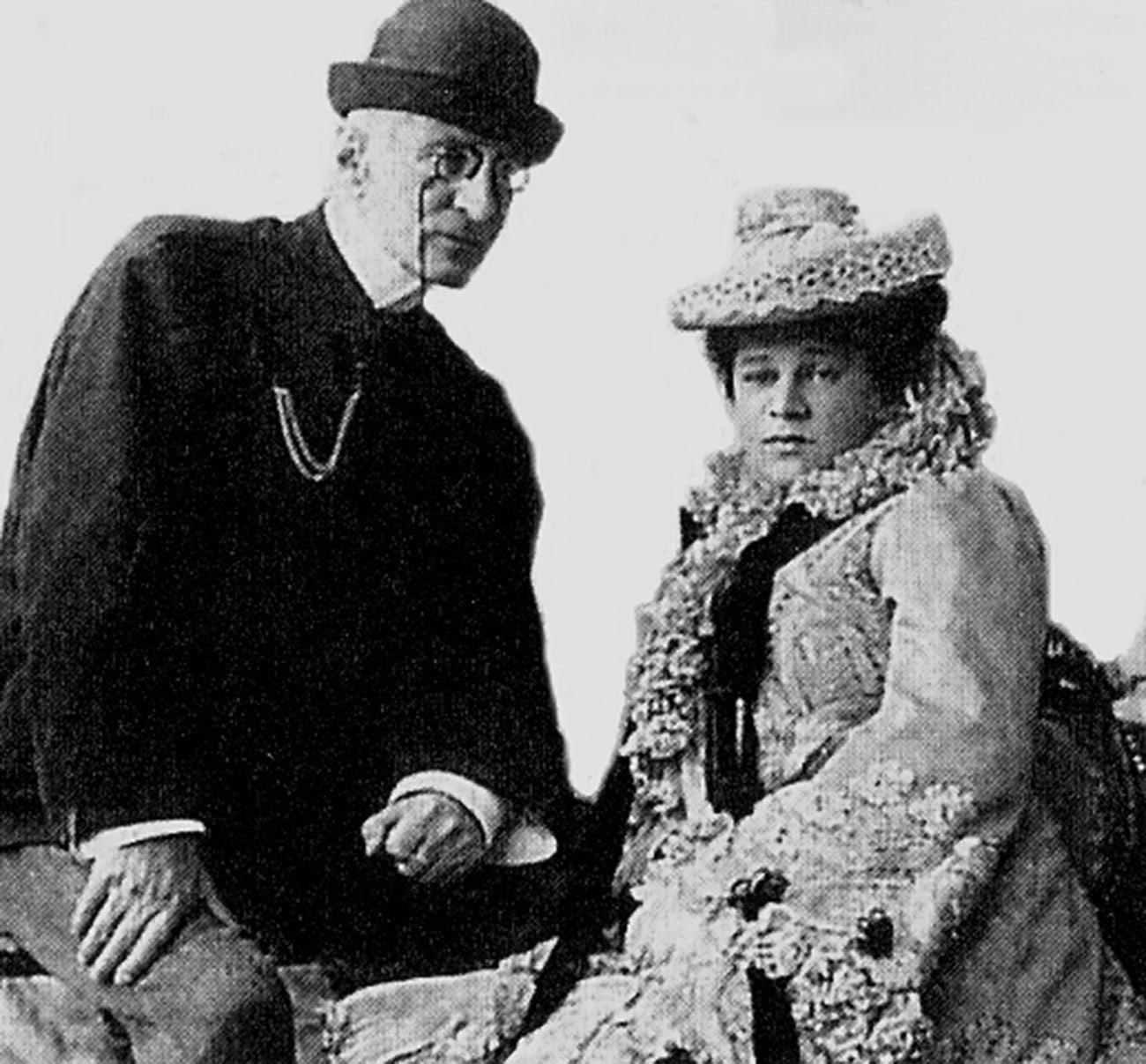
Grand Duke Nicholas Konstantinovich and his wife Nadezhda Dreyer, later the Duchess Iskander
For his book Doctors at His Majesty's Imperial Court, Professor Igor Zimin consulted with present-day psychiatrists. According to psychiatrist Nina Vanchakova, M.D., the Grand Duke may have been suffering from bipolar disorder. In addition to the theft of the diamonds, which he was unable to explain to anyone, his life was full of other impulsive actions.
After he was declared insane, the Grand Duke lived in 10 different places, including Samara, Crimea, Vladimir province, Uman (near Kiev), near Vinnitsa in Podolsk province, then Orenburg. Remaining an honorary member of the Imperial Russian Geographical Society, he wrote research papers on Central Asia, which he had long planned to develop, back from the time of the Khiva campaign. In 1878 in Orenburg, he married a noblewoman, Nadezhda von Dreyer. In 1880, he was brought closer to St. Petersburg, to Sablino: it appeared that his father, Konstantin Nikolayevich, had nearly persuaded his brother Alexander to forgive his nephew. He began to be visited by psychiatrists again. But in March 1881, the tsar was assassinated, and Alexander III had no intention of heeding his uncle's pleas and “forgiving” his cousin. He did not allow Nicholas Konstantinovich to attend the late emperor's funeral, and in response Nicholas Konstantinovich refused to swear allegiance to him. That was a scandal almost bigger than the theft of the diamonds: political opposition could give Nicola the reputation of a martyr and a dissident. That is why he was once again certified insane.
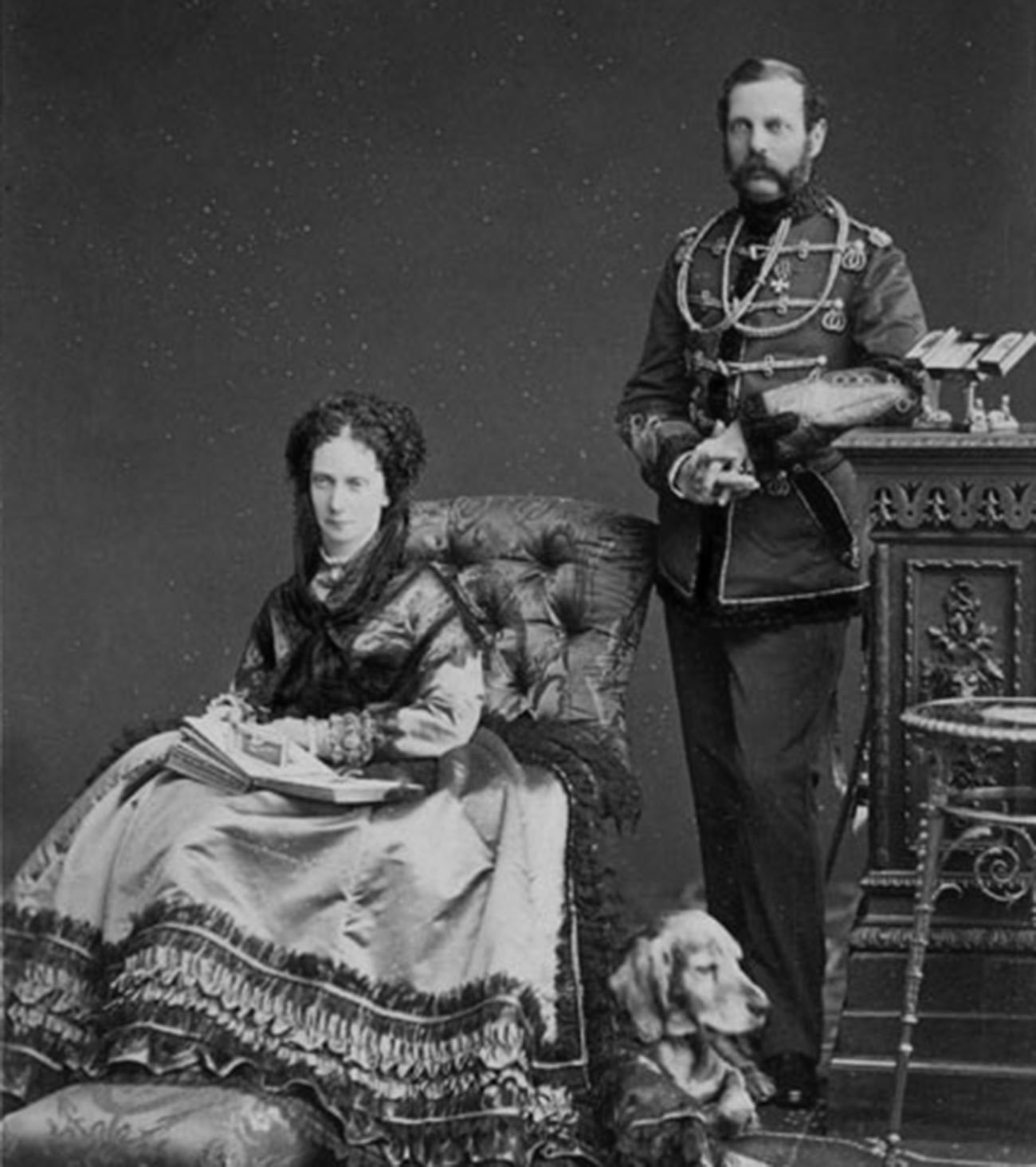
Alexander II of Russia and his wife Maria Alexandrovna
Sergey LevitskyAt first, Nicola was put in a fortress, for political reasons. Then it was recommended that he should be sent to some big city, where his antics could be easily explained by insanity. Nicola was sent to Tashkent, and Nadezhda von Dreyer followed him. Although their marriage, the news of which had reached St. Petersburg, was officially dissolved by the Holy Synod, this did not stop the couple.
Nicholas Konstantinovich lived in Tashkent until his death in 1918. So what other eccentricities did he commit, this man who was busy irrigating steppes, a former thief who started dozens of successful businesses? According to the memoirs of Prime Minister Sergei Witte, "in the region he was recognized as a smart, intelligent and relatively unaffected person". At the same time, he did not stop being a headache for the authorities: for example, once he visited an exiled nihilist and invited him to enter into a secret political union with him against the government. In 1895, he married a Cossack's daughter Daria Chasovitina, with whom he had three children (by then, Nadezhda and her children had moved and lived in St. Petersburg).
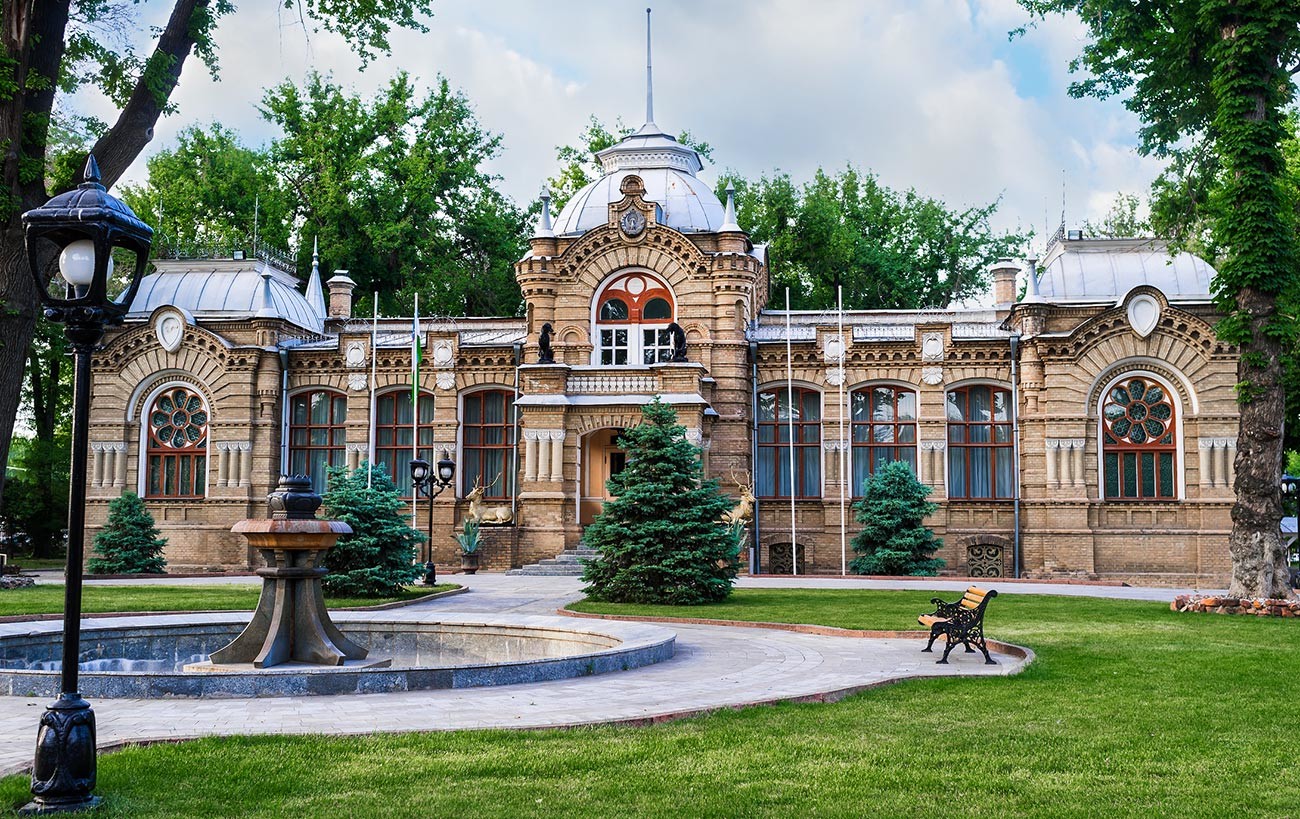
The same palace in Tashkent now.
Legion mediaAfter Alexander III's death, when Nicola’s relationship with the court began to improve, he met Valeria Khmelnitskaya, a 15-year-old schoolgirl from a noble family, began to live with her and tried to get married to her, despite having a living wife, Grand Duchess Nadezhda Iskander. He was once again examined and declared insane. In order to separate the Grand Duke from Valeria, he was transferred to Tver and then to the Baltic provinces. When Khmelnitskaya was no longer an issue (she got married), the Grand Duke was brought back to Tashkent. His extremely impulsive relations with women was a constant topic of gossip in Tashkent: the Grand Duke's cynical view was it was always a matter of price.
At the time of the February Revolution in 1917, Nicholas Konstantinovich was still alive. He raised a red flag above his residence and sent a congratulatory telegram to the new Prime Minister, Alexander Kerensky, his old friend. He later visited his wife Nadezhda in St. Petersburg and took part in the baptism of his granddaughter Natalya, and then returned to Tashkent with Nadezhda, who stayed with him until his death. “Grand Duke Iskander” died on 14 January 1918 from pneumonia.
Family "values"
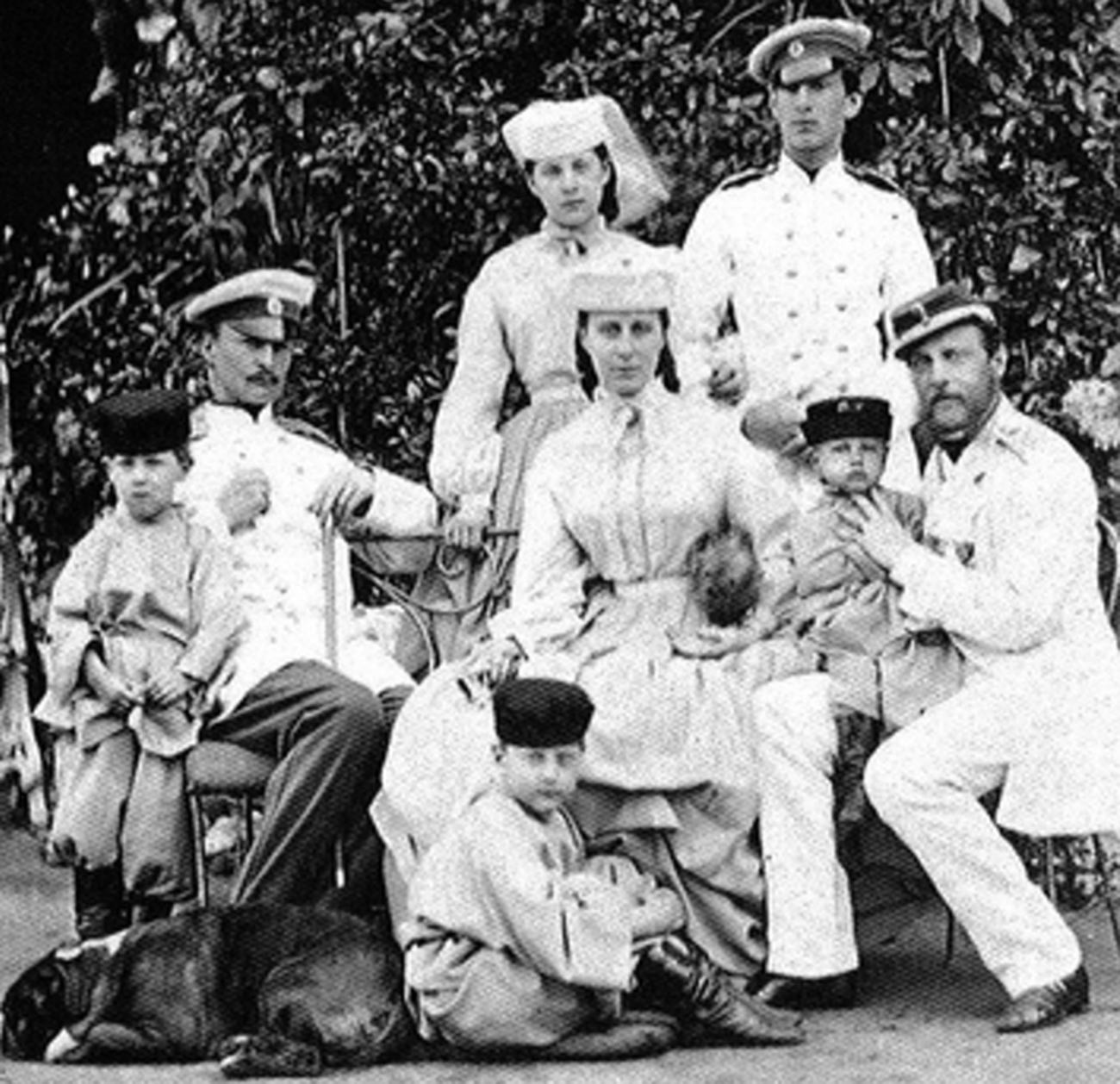
Grand Duke Konstantin Nikolaievich and his family
Public domainWhy didn’t Alexander III want to forgive his cousin, and why were his own brothers, Grand Dukes Konstantin and Dmitry, against his rehabilitation? The thing is that Nicholas Konstantinovich in fact repeated his father's misdemeanor, who openly cheated on his wife Alexandra Iosifovna, and with a dancer too, Anna Kuznetsova. He did not try to conceal it, including from his wife. Having graciously allowed Konstantin Nikolayevich's children from this liaison to have noble titles and carry their father's patronymic (but not his surname – they were known as Knyazevs), Emperor Alexander III nevertheless hated his uncle – after all, his own father, Alexander II, had also cynically cheated on his mother with Princess Dolgorukova. Alexander II had openly settled his mistress in the Winter Palace, and after the death of his wife in 1880, married her, without even waiting for a year of mourning to pass. The emperor’s children never fully repaired their relations with their father after that.
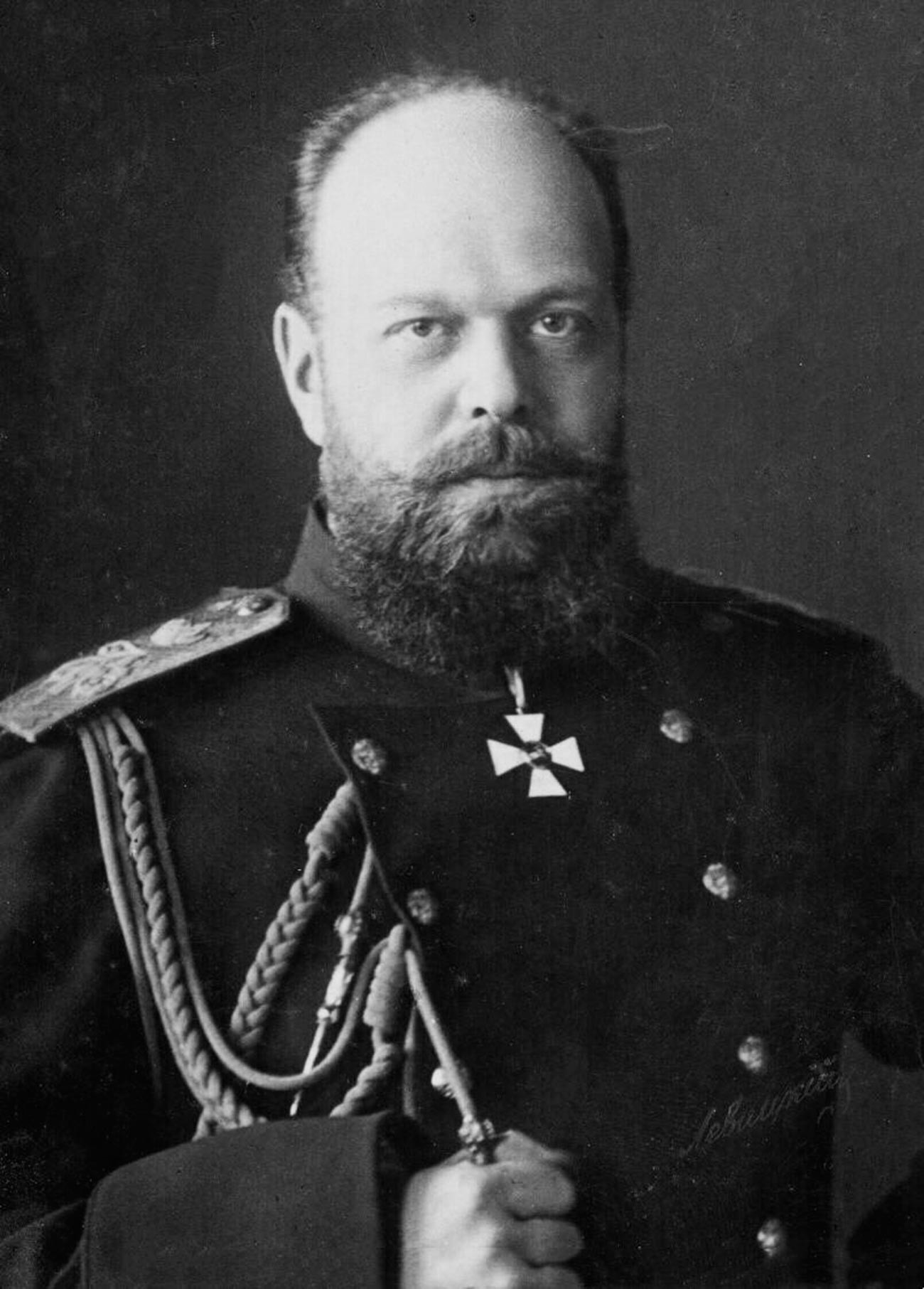
Alexander III, Emperor of Russia
Sergey LevitskyIn the second half of the 19th century, the Russian imperial family lived surrounded by scandal and mutual hatred. It was these people who declared Nicholas Konstantinovich, who felt no remorse for the theft, insane, while his poor mother, who had given birth to six children in a legal marriage, was considered a crazed spiritualist.
Three years before his death, Konstantin Nikolayevich suffered a stroke. He was partially paralyzed and had difficulty speaking. Despite their - to put it mildly - complicated relationship, his wife looked after him until his death. Nicholas Konstantinovich was not allowed to come to pay his last respects to his father.
If using any of Russia Beyond's content, partly or in full, always provide an active hyperlink to the original material.
Subscribe
to our newsletter!
Get the week's best stories straight to your inbox